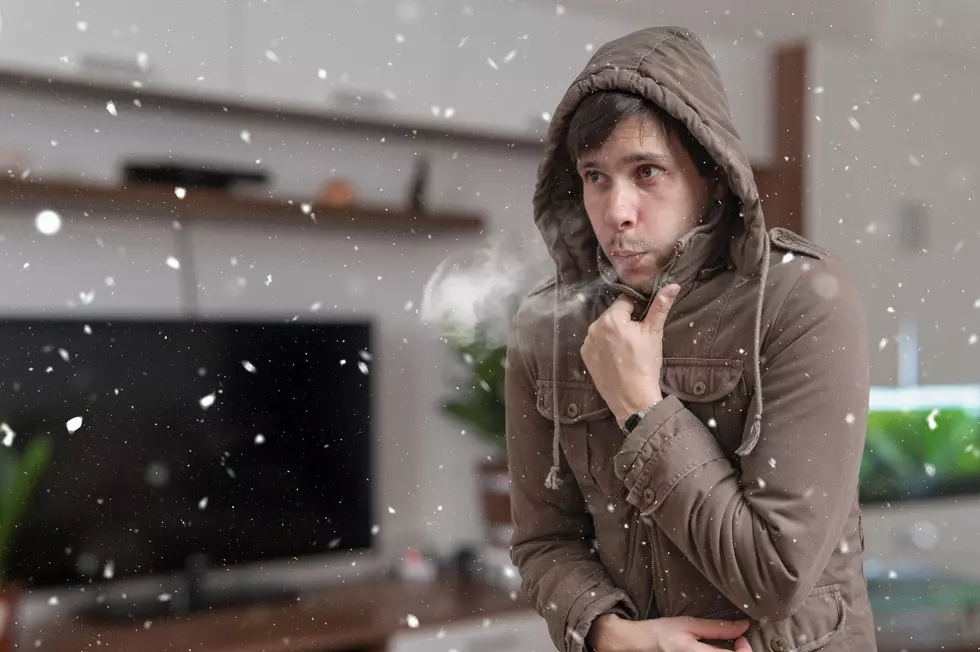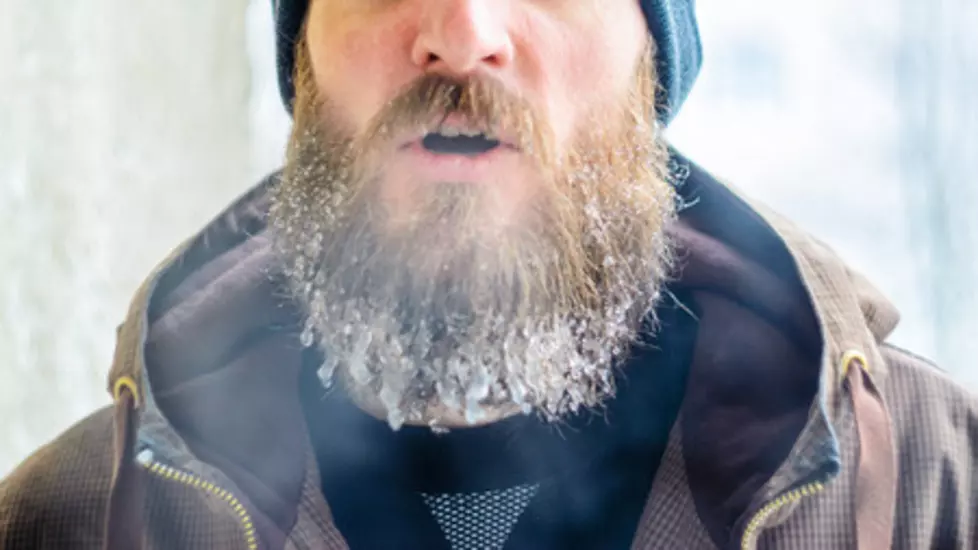
How to Protect Yourself, Family, Pets and Home in Extreme Cold
There's no doubt that a deep chill has set in. As a matter of fact, the National Weather Service in Binghamton says today and tonight will be very interesting weather wise. Check this out:
One of the coldest air masses in several years will impact NY and PA through Wednesday. Temperatures will fall to just below zero in most areas this morning. Winds chills will range from -25F to -35F by daybreak this morning. Winds will gust over 30 MPH. Tuesday temperatures will only reach the single digits to around 10 degrees. Wind chills will remain dangerously cold. Tuesday night minimum temperatures will range from about -5F to +5F with wind chills -15F to -25F.
So what can you do to make sure you, your family and your pets stay safe in this bitter cold? The Washington Post has some excellent tips:
Educate yourself:
The wind chill is calculated by taking into account the air temperature and wind speed. An air temperature in the single digits with sustained windspeed of 15mph can mean it can feel like -20 degrees to you. Frostbite can occur to any exposed skin in less than 30 minutes with wind chills in the -20 degree range.
Know the signs:
Hypothermia: Hypothermia occurs when the internal body temperature drops below 95 degrees. According to the CDC, signs of hypothermia include shivering, drowsiness, confusion, slurred speech, and memory loss. Infants and the elderly are most likely to come down with hypothermia, but don't think that just because you're average aged and healthy that you're not at rick, because you are.
Frostbite: Frostbite is literally frozen skin. The early signs of frostbite include redness of the skin and pain. As frost bite gets worse and advances the signs include a whitening/greying or yellowing of the skin, skin that feels very firm or waxy, and numbness.
Have a plan and an emergency cold kit: Have an emergency kit ready that includes extra batteries (did you know that batteries drain faster in the cold?), extra blankets and/or sleeping bags, a fire extinguisher, carbon monoxide detector, etc. The CDC has a full checklist that will help.
Preparing your pets for the cold:
Even though your pet has fur, they can be affected by the cold just as fast as you and me. Here are some tips from the ASPCA on how to protect your little guy:
DO NOT leave your pet outside. Even if your pet is normally an outdoor pet, bring them inside because they'll freeze to death when it gets this cold. If you spot an animal stuck outside, call the authorities right away.
When walking your dog, keep them on a leash to prevent the dog from running away or getting lost. In the cold, scents are lost and dogs can easily lose their way.
Keep pet beds off the floor or away from doors and windows where cold air can settle or cold drafts can exist. Provide a warm blanket or pillow to keep them warm.
Don't leave your pet in the car. This should pretty much go without saying, but don't leave your pet in a vehicle during the extreme cold. Cold air can get trapped in a car like a freezer.
Dogs and cats can get hypothermia just like us. Here's how to know what the signs are: your dog or cat might appear very lethargic or not seem interested in food. They can also get frostbite. Ears and paws are most likely to experience frost bite. A way to tell is if the tips of the ears become red or hard. Paws will also become very red, and your pet might lick them which is a sign of numbness, pain, or sensitivity.
Protecting your home in the cold:
- Keep cabinet doors open and allow faucets to drip to keep pipes from freezing.
- Drain or disconnect any outdoor faucets or hoses to prevent freezing.
- Keep generators outside and at least 20 feet way from your home to prevent carbon monoxide poisoning.
- Install carbon monoxide detectors on every floor of your home.
- Keep your thermostat at a steady temperature, but no lower than 55 degrees.
- Covering windows with plastic on the inside.
- Make sure your chimney is clean before burning wood.
- Keep portable heaters at least 3 feet away from bedding, curtains, drapes, etc. to prevent fires.
- Don't use portable gas camp stoves or charcoal grills inside due to deadly fumes.
- Fill a bathtub with water in the event water mains break.
- Thaw any frozen pipes with a hair dryer, NOT a torch or flame source.
More From 98.1 The Hawk





![Five Medical Myths You Thought Were True [Gallery]](http://townsquare.media/site/498/files/2012/11/coffee_iStockphoto_136650707.jpg?w=980&q=75)



